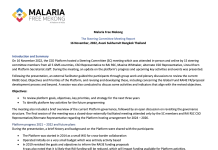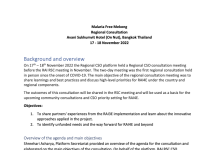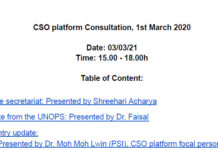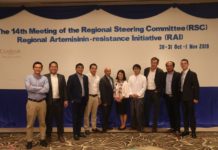ARC as a host of malaria CSO platform, GMS has organized a Regional workshop on Disease integration on 8-9th July in Bangkok, Thailand. More than 40 participants including Ministry of Labour from Thailand, RSC CSO Representatives, RAI RSC Secretariat, PR UNOPS, CSO platform country steering committee members and RAI implementing CSOs from Cambodia, Myanmar, Laos, Thailand, and Vietnam attended the workshop to discuss on leveraging the roles of community malaria workers/ volunteers to eliminate malaria and maximize public health benefits at the community level.
The specific objectives of the workshop are
1. To gain a better understanding of the role of community health volunteers through health systems lens in GMS countries
2. To identify country-specific opportunities and options to move towards greater integration with the enhanced role of malaria volunteers including process and mechanism to achieve that
3. To formulate advocacy messages and country-specific advocacy plans aimed at supporting the inclusion of integrated service delivery approaches and enhanced malaria volunteer roles in National Strategic Plans and funding requests to the next round of RAI grant
After a series of interactive discussion for the disease integration as a sustainable approach, the CSO platform was able to map out the potential gaps and improvement areas in terms of essential stakeholders, relevant diseases for integration, and possible channels to implement. As a result, regional CSO platform formulated the advocacy statements through the collective voice from the CSO implementing partners for the next RSC meeting in Yangon, Myanmar. Ultimately, the joint regional CSO statements and country-specific plans aiming for a more integrated community health worker model tailored to each country’s context will provide critical movement for the region to provide better health services not only malaria but also other health services needed for the community.
ARC appreciates all the participants for attending the workshop and providing valuable inputs to the discussion.








